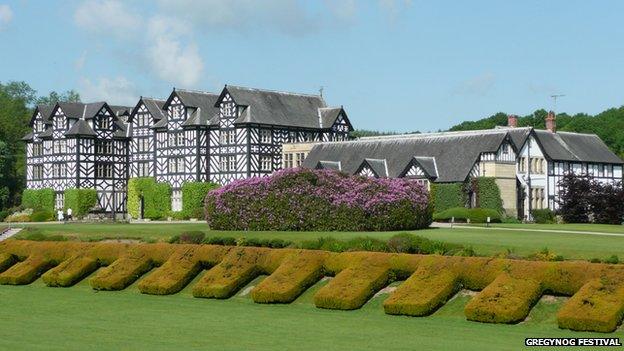How Rhyl became a sanctuary for Belgians in World War One
- Published
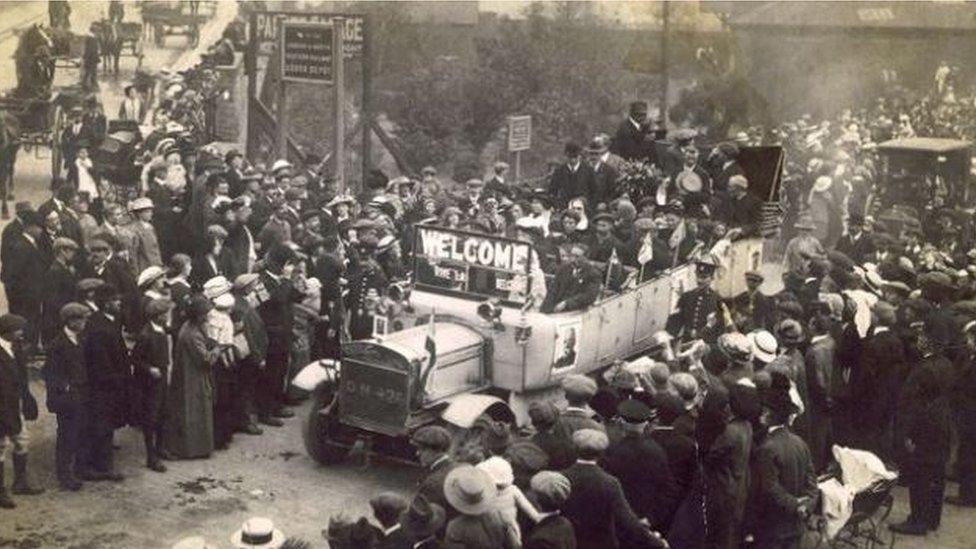
As Wales prepares to receive its share of refugees fleeing the conflict in Syria, a Denbighshire project is learning from the experiences of 66 Belgians who found sanctuary in Rhyl during World War One.
Their stories are set to be told in a lecture at Rhyl Little Theatre by Dr Christophe Declercq.
An expert from University College London and the University of Ghent, he has spent more than a decade researching the accounts of Belgian refugees across all parts of the UK.
The event is part of the Wales for Peace project - a four-year initiative backed by the Heritage Lottery Fund which aims to chart Wales' contribution to the search for peace in the century since World War One.

More than 4,500 Belgians arrived in Wales between 1914 and 1918.
The majority returned home after the liberation of their country. But they left behind a legacy of art in the form of a beautiful plaque in Bangor, carvings at the churches of Llanwenog and Llanfihangel-y-Creuddyn, Ceredigion, and the Belgian Pier on Anglesey.
Although, their most enduring gift was the intricately carved "Black Chair", made by Belgian refugee craftsmen and awarded posthumously to Hedd Wyn at the 1917 National Eisteddfod in Birkenhead, following his death at the Battle of Passchendaele in 1917.
But while many towns only wanted to host what was termed at the time "the better class of Belgian", Rhyl offered a home to the most impoverished and vulnerable.
Dr Declercq said it was a kindness which is still remembered in Belgium to this day.
"Rhyl, and even the whole of Wales, only received quite a small proportion of all the Belgians to come to Britain," he said.
"But when we started appealing for family memories we found a disproportionate number came from descendants of people who'd been in Wales.
"Rhyl can pride itself on the iconic photograph which has survived, showing the warm welcome given to the first refugees who arrived by train - an enormous crowd can be seen welcoming them.
"So I'm looking forward to meeting the people of Rhyl and north Wales in order to share my research, but also to learn more from them."
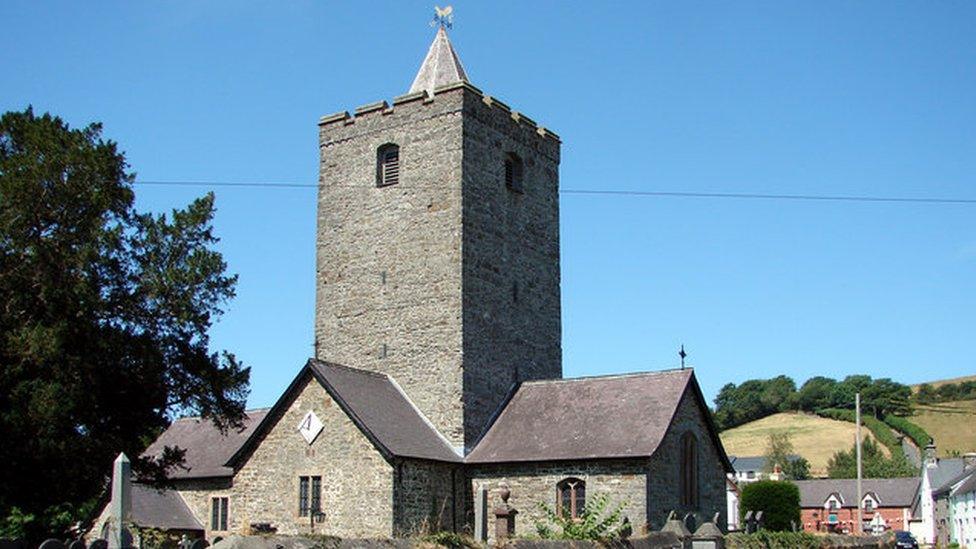
As with many towns, Swansea in particular, there was a pre-existing "pull factor" which helped draw the refugees to Rhyl.
Local historian Antoni Vitti, who received the Mayor of Rhyl's Ambassador Award in 2015 for his work on the project, explained that in Rhyl's case it was their local convent.
"St Mary's convent already had eight Belgian nuns at the time and the Mother Superior, Victoria O'Kearney, was so moved that she became the driving force behind welcoming the refugees to Rhyl," he said.
"It was only a small connection, but when you find yourself in a strange country, even the smallest link to home is vital.
"Once they'd acclimatised, most tended to move on from Rhyl to places where there was more work. But I think the Belgians liked Rhyl because of the scenery, and because of the image Lloyd George created of Wales and Belgium being two of the little countries sharing a similar bilingual culture."
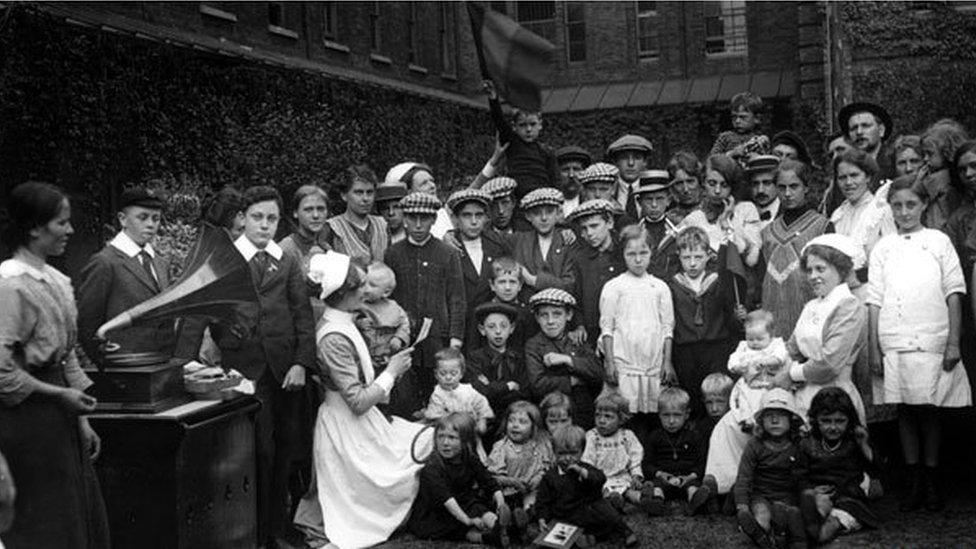
These Belgian refugees were at a workhouse in London in 1914
Mr Vitti first became fascinated with the links between the town and Belgium when he discovered that one of the refugees had been buried there in an unmarked pauper's grave.
"I thought that needed putting right, so I went to Belgium in search of his family to get their permission to install a memorial," he explained.
"Whilst searching for his family I started to find more about the others who were here. The 'RefugeesinRhyl, external' website has now been seen by more than 125,000 people across the world, with more than half of them in Belgium.
"The project has led to new friendships both locally and overseas, and I'm so proud that Dr Declercq is acknowledging the research we have done here in Rhyl and North Wales, by coming to lecture here with me."
- Published7 July 2014
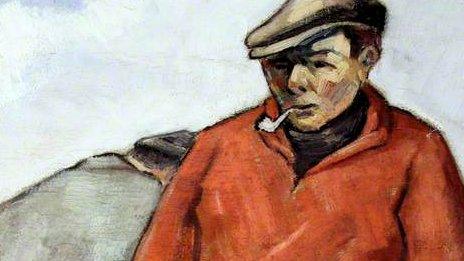
- Published21 March 2014
